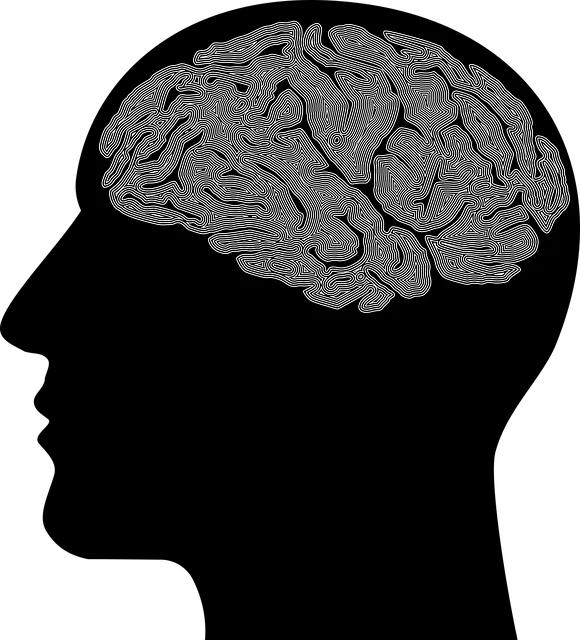Wheat Ridge Kaiser Permanente mental health locations prioritize staff well-being through public awareness campaigns, empathy building, flexible scheduling, and self-care initiatives. They promote open communication, provide resources for resilience and stress management, and implement supportive strategies to prevent burnout among healthcare providers. These efforts enhance work-life balance, foster a sustainable team environment, and ultimately improve patient outcomes at Wheat Ridge Kaiser Permanente mental health locations.
Healthcare provider burnout is a growing concern, particularly at facilities like Wheat Ridge Kaiser Permanente mental health locations. This article explores comprehensive strategies to combat burnout among mental health professionals in these settings. We delve into understanding burnout’s unique dynamics specific to these locations, focusing on work-life balance, self-care, mindfulness practices, and the vital role of team resilience and support systems in preventing burnout and fostering a healthier, more sustainable workforce.
- Understanding Burnout Among Healthcare Providers at Wheat Ridge Kaiser Permanente Mental Health Locations
- Strategies to Enhance Work-Life Balance for Mental Health Professionals
- The Role of Self-Care and Mindfulness in Preventing Burnout
- Building Resilience and Support Systems within the Healthcare Team
Understanding Burnout Among Healthcare Providers at Wheat Ridge Kaiser Permanente Mental Health Locations

In the high-pressure environment of Wheat Ridge Kaiser Permanente mental health locations, healthcare providers constantly juggle demanding workloads and complex patient needs. Burnout, characterized by emotional exhaustion, depersonalization, and reduced personal accomplishment, has become a significant concern among this workforce. Recognizing burnout at an early stage is crucial to prevent its adverse effects on both provider well-being and patient care quality. Public Awareness Campaigns Development plays a vital role in educating staff about the signs of burnout and fostering open conversations around mental health.
Burnout Prevention Strategies for Healthcare Providers, including Empathy Building Strategies, are essential tools to create a supportive work environment. By cultivating empathy, providers can enhance their connections with patients, leading to improved patient outcomes. These strategies promote self-care practices, encourage realistic workload management, and foster a culture of resilience and support among mental health professionals at Wheat Ridge Kaiser Permanente locations.
Strategies to Enhance Work-Life Balance for Mental Health Professionals

Maintaining a healthy work-life balance is essential for mental health professionals to prevent burnout. At Wheat Ridge Kaiser Permanente mental health locations, strategies like flexible scheduling and remote therapy sessions are being implemented to support staff. These measures allow healthcare providers to manage their time effectively, spend quality time with family and friends, and engage in activities that promote personal well-being. Additionally, encouraging open communication among team members fosters a supportive environment, reducing stress and improving job satisfaction.
Promoting mental wellness within the workforce is key. Kaiser Permanente’s Community Outreach Program plays a significant role by offering resources and workshops focused on resilience building, stress management, and self-care techniques. These initiatives not only help professionals at Wheat Ridge but also contribute to a more sustainable and motivated healthcare team. By prioritizing work-life balance and mental wellness, Kaiser Permanente ensures that their mental health locations remain vibrant and effective in serving the community.
The Role of Self-Care and Mindfulness in Preventing Burnout

In the fight against healthcare provider burnout, self-care and mindfulness practices are essential tools. Beyond Wheat Ridge Kaiser Permanente mental health locations, these strategies empower professionals to cultivate inner resilience and maintain emotional balance amidst demanding work environments. Incorporating regular moments for reflection, relaxation, and engaging in activities that nurture well-being can prevent the overwhelming stress that often leads to burnout.
Developing inner strength through practices like mindfulness meditation, deep breathing exercises, or even keeping a mental wellness journal can offer crucial support services. These acts of self-care create a buffer against workplace challenges, allowing healthcare providers to better manage their emotions and maintain a positive outlook. By prioritizing their own mental health, professionals can enhance patient care and contribute to a more sustainable and fulfilling work environment, ultimately benefiting both themselves and the communities they serve.
Building Resilience and Support Systems within the Healthcare Team

Building resilience within healthcare teams is a powerful strategy to prevent burnout, especially at mental health locations like Wheat Ridge Kaiser Permanente. Fostering a supportive environment where professionals can openly discuss challenges and share resources enhances team cohesion and individual well-being. Encouraging peer mentoring programs and regular staff meetings dedicated to sharing best practices can cultivate a culture of resilience.
Furthermore, integrating cultural sensitivity in mental healthcare practice is essential. Training team members on diverse cultural backgrounds and perspectives ensures patient care remains inclusive and effective. Public awareness campaigns development focused on mental health can also play a role by reducing stigma and promoting early intervention, ultimately lightening the workload on healthcare providers. These initiatives, coupled with accessible Anxiety Relief resources, contribute to creating a robust support system that mitigates burnout and fosters a healthier work environment.
Burnout among healthcare providers, particularly at Wheat Ridge Kaiser Permanente mental health locations, is a pressing issue that demands multifaceted attention. By implementing strategies that enhance work-life balance, prioritize self-care and mindfulness, and foster a resilient support system within the healthcare team, we can mitigate burnout risks and ensure the well-being of our mental health professionals. These approaches not only benefit individual practitioners but also contribute to improved patient care and organizational productivity at Wheat Ridge Kaiser Permanente and similar healthcare settings.




